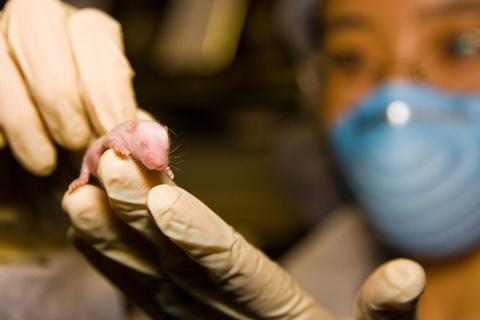Potential treatment for genetic form of autism

It may soon be possible to reverse a genetic form of autism spectrum disorder (ASD) by using drugs initially developed to treat cancer.
A team of researchers, led by Professor Riccardo Brambilla from Cardiff University, discovered that an experimental drug can potentially treat, and even permanently reverse, the symptoms associated with a genetic form of ASD.
Cardiff University reports they found that the lack of a protein called ERK1 in people with a missing region on chromosome 16 (16p11.2 deletion) leads to an abnormal activation of another protein, ERK2. By using cancer trial drugs to inhibit the function of ERK2 to reach the brain, they changed the brain function in mice and reversed most of the behavioural traits associated with ASD.
ERK1 and ERK2 proteins are currently major targets for cancer therapy trials so it is possible, in principle, to develop suitable drugs to treat this form of ASD based on knowledge of tumour biology.
Professor Riccardo Brambilla, from Cardiff University’s School of Biosciences and the Neuroscience and Mental Health Research Institute, said “By limiting the function of the protein that appears to cause autism symptoms in people with the chromosome 16 defect, the trial drug not only provided symptomatic relief when administered to adult mice, but also prevented genetically predisposed mice from being born with the form of ASD, when administered to the mother during gestation. While it wouldn’t be feasible to treat pregnant women who have been screened for the genetic abnormality, it could be possible, in principle, to permanently reverse the disorder by treating a child as early as possible after birth. In the case of adults with the condition, ongoing medication would probably be required to treat symptoms.”
There are around seven hundred thousand people on the autism spectrum in the UK. If their families are included, autism is a part of daily life for 2.8 million people. However, the prevalence of the chromosome 16 defect is much lower, found in around one in a hundred people with autism.
The research, in collaboration with the laboratory of Professor Gary Landreth from Indiana University School of Medicine and Dr Alessandro Gozzi from the Istituto Italiano di Tecnologia, was carried out using mice and monitoring the effect of the drug on their brains and behaviour. The drugs used are experimental and cannot yet be used in humans.
The next step is to develop new collaborations to explore the full therapeutic potential of the findings, with the ultimate goal of validating clinically relevant drugs to test in trials for people with ASD with the chromosome 16 defect.








